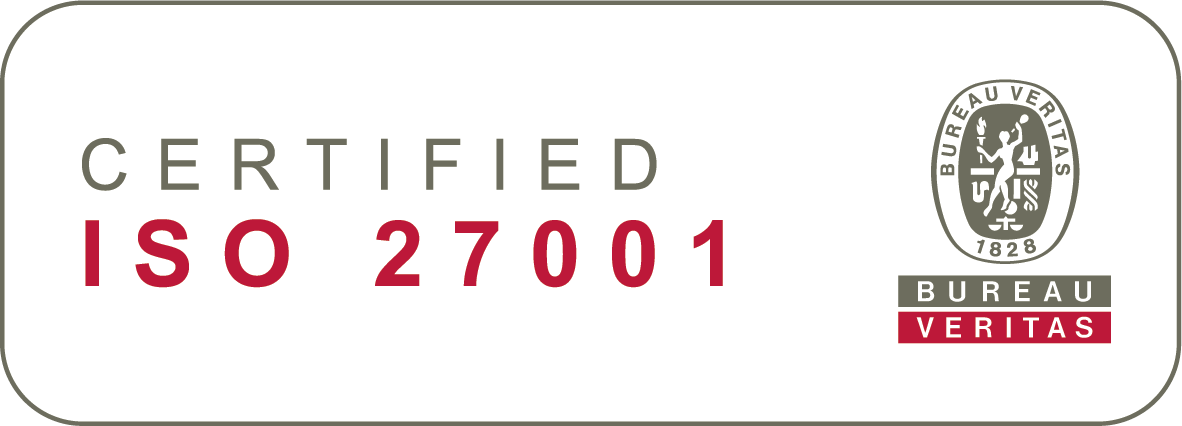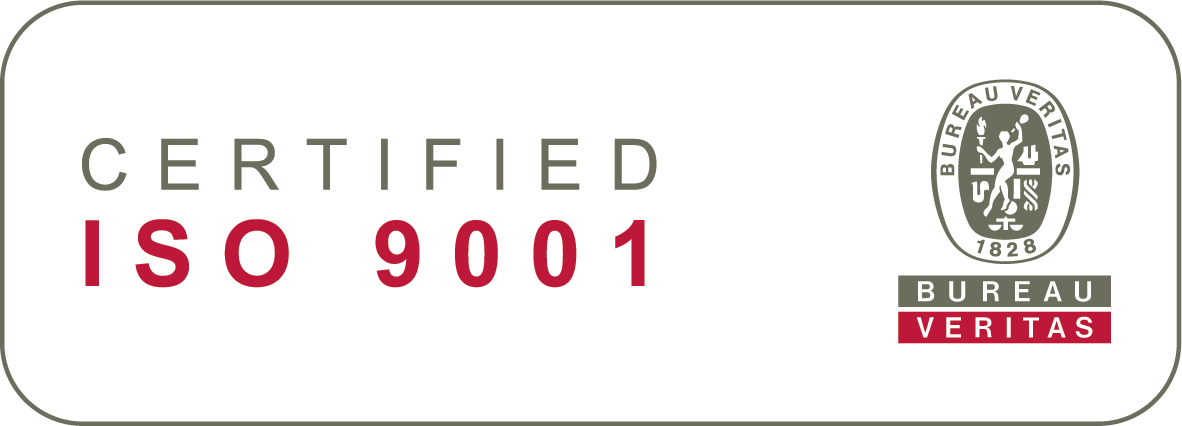With 69 % of employers reporting that they find it more difficult to find and hire skilled candidates, businesses don’t have the upper hand anymore; employees do.
If COVID-19 can, of course, explain some of the difficulties that employers are facing, data suggests that the trend began long before the pandemic.
Research from Manpower (see below) shows that it’s been increasingly difficult for employers to fill open jobs (at least) since 2010.
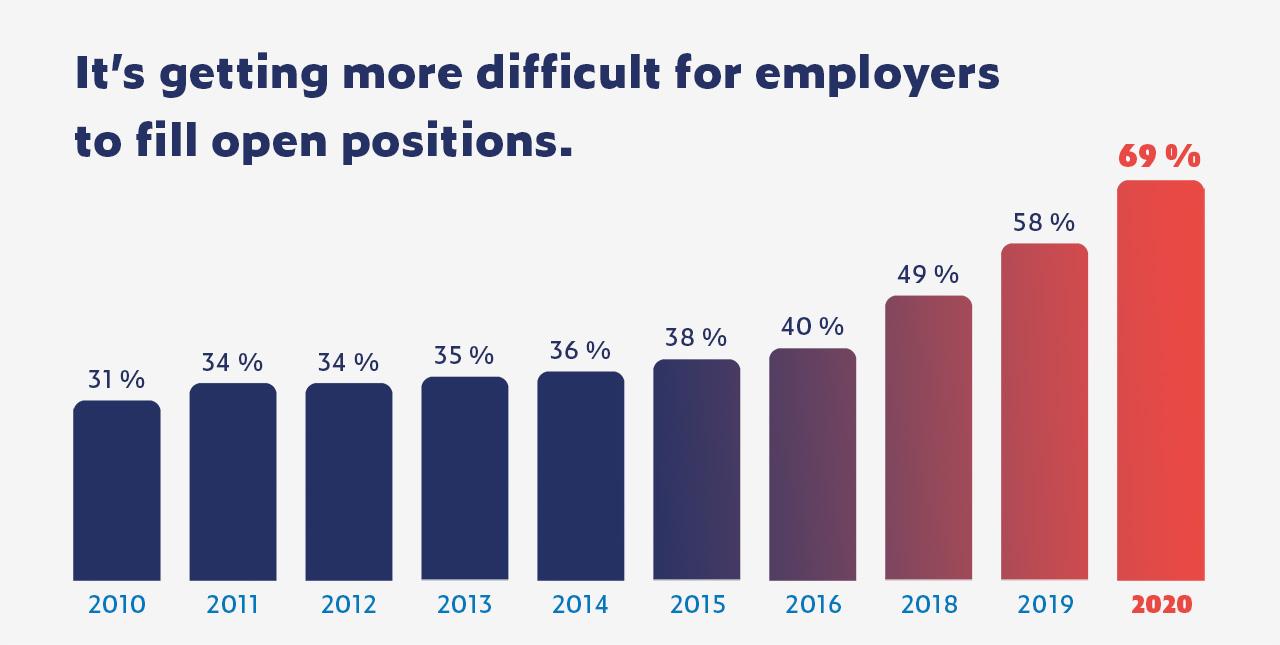
Source: ManpowerGroup Employment Outlook Survey Q3 2021
What can organisations do?
The answer is simple: invest in Employee Value Proposition (EVP). To make a long story short, the employee value proposition is instrumental in attracting and retaining top talent in an ever more competitive market.
In this blog post, we’ll explain in more detail why Employee Value Proposition is one of your most important assets.
What is Employee Value Proposition?
The world of work has evolved a lot, and so has the concept of EVP.
Yesterday, the employee value proposition covered the benefits provided by an organisation to its employees (monetary and non-monetary) in return for their contribution (skills, capabilities, experience, etc.).
This definition is now outdated.
The concept of EVP is now unbalanced in favour of employees as it really is about what employers can do to please their employees.
A more modern definition of EVP would then be: Employee value proposition is what an employer can provide to employees to ensure they have everything they need to deliver their maximum potential.
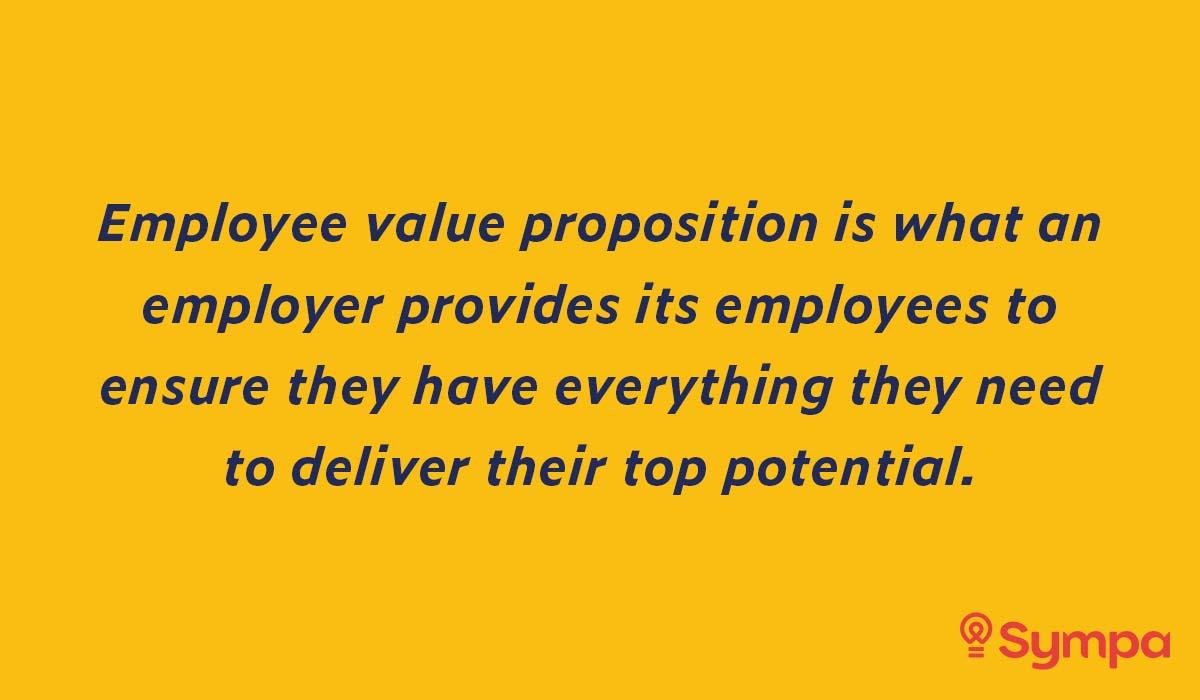
Why is Employee Value Proposition so important?
In many aspects, your EVP can be considered the glue that holds your company together.
We explore why right below.
EVP at the centre of your employer brand
Because it focuses on employee wellbeing, a strong EVP helps organisations and HR professionals establish a strong(er) employer brand.
This matters because your employer brand defines how attractive your company is for job seekers, employees, and customers.
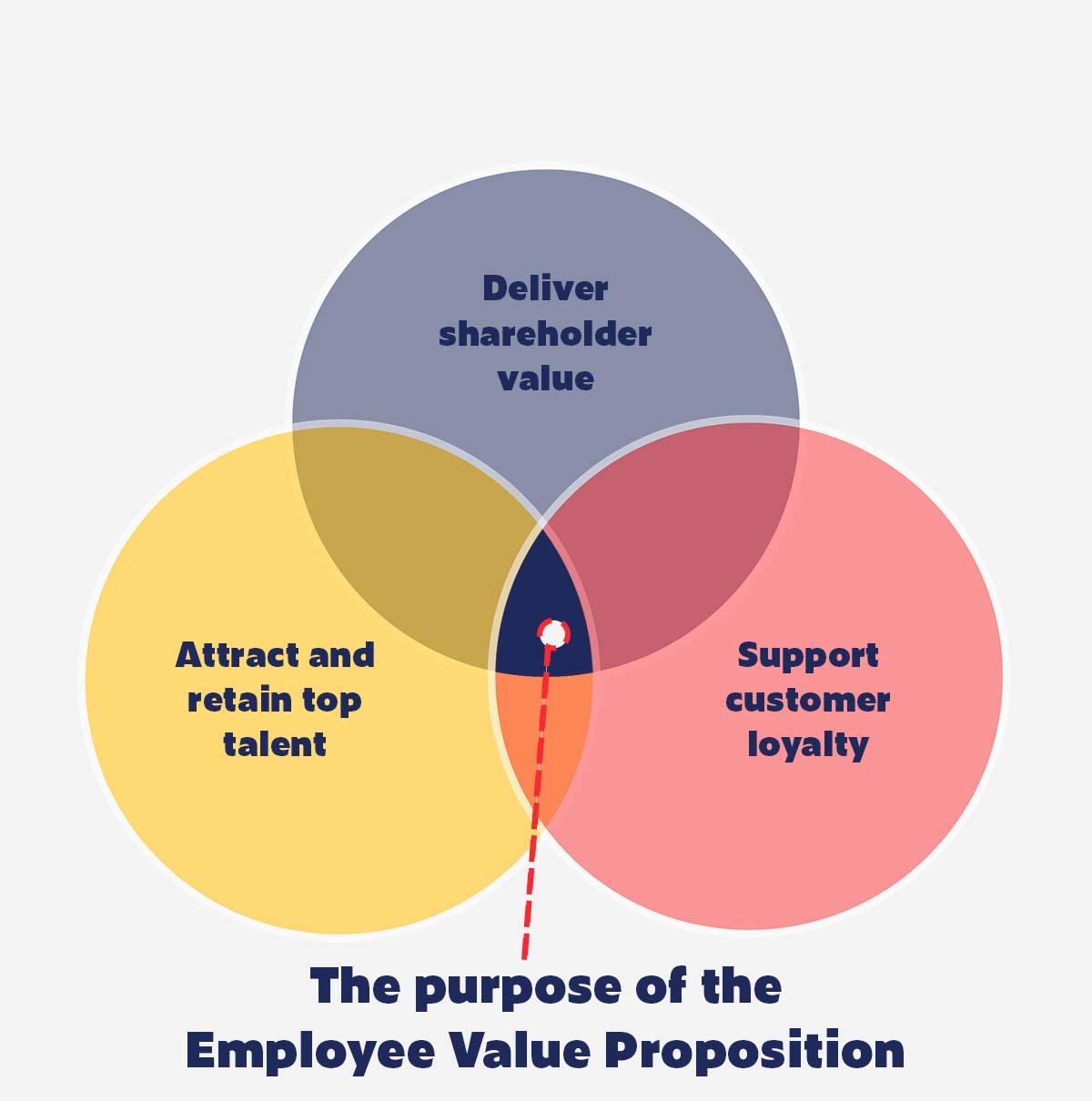
Source: Employee Value Proposition, Gagen MacDonald
With 86% of applicants checking reviews before applying for a job, reputation and employer brand matter should be a priority for most companies, especially since attracting talent is getting more difficult.
Attract top talent
As we are writing the future of work, the world of recruitment is also undergoing a significant revolution, and the competition is now getting fiercer on the employer side. In fact, hiring top talent is now so complex that 86% of HR professionals say that recruitment is becoming more like marketing.
Job seekers look for places with an excellent reputation
As we – humans – are spending most of our time working during the week, it’s only natural to look for workplaces where we’ll feel great. Here again, EVP can have a significant impact on your ability to attract top talent.
Let me illustrate this one point by flipping the table.
Working on your EVP will make it easier for your organisation to attract strong candidates who are already employed. The HR Daily Advisor indeed reports that 92% of people would likely change jobs if they’d receive an offer from a company with an excellent reputation.
In other words, the better your employee value proposition and employer brand, the more applications you’ll receive from top candidates.
Retain top talent
Attracting top talent is a necessity for companies to grow. But retaining talent is even more important.
We like to say that a company is only as great as its people. And this is why you should double down on everything when it comes to keeping employees happy.
The reason for this is simple; happy employees will stay longer in your organisation, and they’ll be more efficient at task.
Increase retention: Happy employees stay longer
The normalisation of remote work and increased focus on employee well-being — with an emphasis on healthy work-life balance — made employee value proposition even more important.
Investing in EVP shows employees that their organisation cares for their wellbeing. It shows appreciation.
This matters because employees aren’t just in it for monetary reasons anymore. They are looking for meaning in what they do and appreciation from their employer. In fact, 79% of people quitting their job mention the lack of appreciation as a key factor.
Increase short term retention
Given the high average cost per hire (€4500), early employee churn can have devastating effects, especially if there’s a mismatch between the employee and the company.
3 in 10 job seekers say they have left their position within the first three months, thus indicating a misalignment between the candidate’s expectations and the actual employer brand).
To prevent this from happening, organisations should openly communicate their values and culture and make their Employee Value Proposition clear to job seekers before hiring them to ensure a match.
Increase productivity: Happy employees are more efficient
Research by Oxford University’s Saïd Business School reveals a strong link between happiness at work and productivity. They found that happy employees are, on average, 13% more productive than others.
Turn your employees into brand ambassadors.
Your employees are your best brand ambassadors. You could spend millions on ads to communicate how great your company is, and the results will never reach your employees’ word of mouth. Research even shows that their voices are up to 3 times more impactful than their CEO’s when talking about their company.
Give your employees perspectives.
One way to ensure that your employees are happy at work is to give them personal development and growth opportunities.
Other than running regular work appraisals to support individual development, we find that the most efficient way to do so is to map your organisation’s skills. Identify what’s missing and what could be fixed with targeted training sessions.
Read our Talent Management guide to learn more about developing your current skills.
Reduce your cost per hire
The average cost per hire is rounding up to €4500. Here again, your EVP can have a significant impact on your business’ finances.
Taking all the above into consideration, a strong EVP should positively affect your employer brand and your overall reputation.
If you have an excellent reputation:
- Receive more applications
- Receive more top applications
- With a larger pool of applicants to choose from, you’ll hire people who will greatly impact your business.
If you have a bad reputation:
- You’ll have to spend more time and money to receive applications (recruitment agencies, targeted advertising, etc.)
- You’ll most likely receive fewer applications from top candidates.
- You might find it challenging to hire game-changing candidates.
Looking at data, a bad reputation won’t only cost you great talent; it will literally increase your hiring costs since organisations with a lousy reputation reportedly see their recruitment costs increase by at least 10%.
On the other hand, organisations with a strong employer brand can reduce their cost per hire by half.

Invest in your people. Grow your organisation
There you have it.
A clear and honest EVP won’t only increase your chances of attracting good-fit talent but will also keep and engage existing employees.
Last piece of advice? Stay true to company culture. Make sure your EVP shows why you are different from your competitors without overdoing it. An EVP is not about branding alone: it only works if it reflects reality.
Interested in how Sympa can boost your HR processes?
Let us show you how you can get your HR processes up to speed with our user friendly HR system. Your employees will benefit from it greatly!
Book an online demo
Fill in the form below and we'll get in touch with you as soon as possible to schedule an online meeting.

